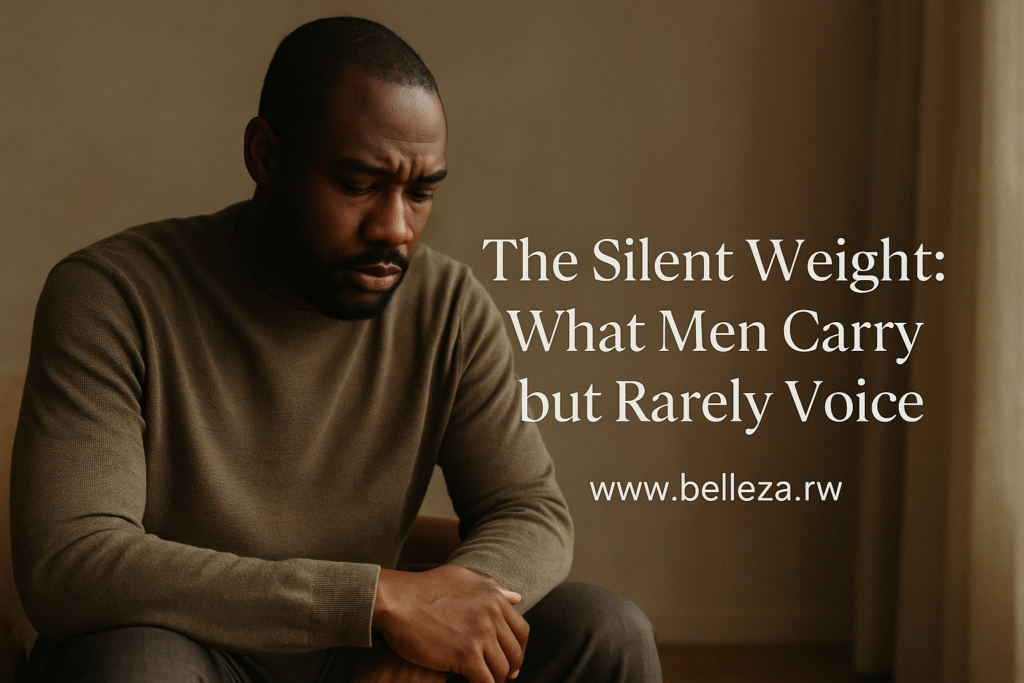
What if He wasn’t born broken?
We often ask:
“Why don’t men open up?”
“Why aren’t they emotionally present?”
“Why are they so angry, distant, or cold?”
But maybe the better question is:
What happened to the boy before he became a man?
To understand men’s mental health, we must start not with the man — but with the child he once was.
Boyhood: Where the silence begins
Every boy is born soft-hearted and alive with emotion.
He cries when he’s overwhelmed. He laughs from his belly. He reaches for hugs and expresses what he feels.
But slowly, the world begins to whisper:
“Boys don’t cry.”
“Be tough.”
“Stop acting like a girl.”
“Man up.”
In these quiet moments, something begins to change.
He learns that expressing pain brings shame.
He learns that love and approval often come through performance, not presence.
And so — he starts to build a wall.
Adolescence: Where emotions get buried
By the time he reaches adolescence, that wall is thicker.
His body is growing, his identity forming — but the emotional tools he needs are missing.
Now surrounded by peers who mock vulnerability and a culture that equates softness with weakness, he often turns inward. Or, outward — through anger.
Anger becomes the one emotion that feels safe.
Silence becomes his armor.
Numbing becomes his survival.
And no one stops to ask: “Are you okay?”
So, he stops asking it of himself, too
Manhood: Where the Weight Cracks the Spirit
By adulthood, the world expects him to be strong.
He must provide, protect, perform — and do so without breaking.
But beneath the surface, many men carry:
- Deep grief they’ve never voiced
- Anxiety masked as overwork
- Depression hidden behind smiles
- A constant fear of not being “enough”
We tell men to show up, but we forget they’ve been trained to disappear emotionally since boyhood.
And when they break down or pull away, we don’t recognize it as pain.
We label it: lazy. Detached. Unavailable. Cold. he stops asking it of himself, too.
The unspoken crisis
What we’re seeing isn’t a failure of masculinity — it’s the collapse of emotional suppression.
We are blaming men for not being emotionally available while giving them no roadmap for how to be.
They’re not emotionless.
They’ve just been told their emotions don’t matter — since the beginning.
A Letter to the Silent Ones
It’s easy to speak about men.
But when was the last time someone spoke to them — with kindness, understanding, and no judgment?
Today, we pause.
Not to analyze, accuse, or advise — but simply to say what should have been said long ago.
A letter, for the boy, the teen, and the man.
To the Boy:
You were never too soft.
Your tears were never shameful.
You should have been held, not hardened.
To the Teen:
Your silence wasn’t defiance — it was protection.
You didn’t know how to speak pain, so you wore it instead.
To the Man:
You are not failing.
You are carrying too much.
You are allowed to feel. To cry. To heal.
You don’t have to keep doing this alone.
To All of Us: Let’s Do Better
This is not just a men’s issue.
It’s a human issue.
A generational issue.
A cultural wound that needs all of us to heal.
So, what can we do?
Here’s where we Begin:
- Raise boys with permission to feel
- Create safe spaces for teenage boys to talk
- Affirm men when they’re vulnerable
- Normalize therapy and healing conversations
- Let go of outdated definitions of masculinity
Let’s rewrite the story — together
Because when men heal, relationships heal.
When fathers soften, families grow stronger.
When brothers speak, generations listen.
So, this June — and beyond — let’s stop blaming men for being silent.
Let’s ask how we’ve silenced them.
And let’s begin the work of listening again.
www.belleza.rw | #MensMentalHealth #RewriteManhood #BellezaWellness
Félicité Haguma, The Potentialist
Mindset and Wellness Coach
Belleza

I love this!
Keep it up